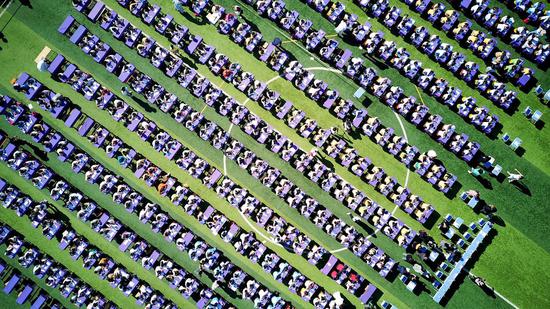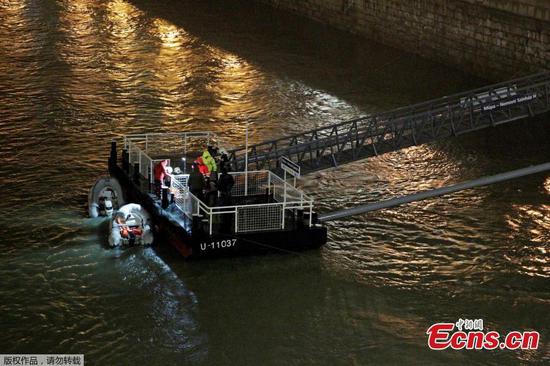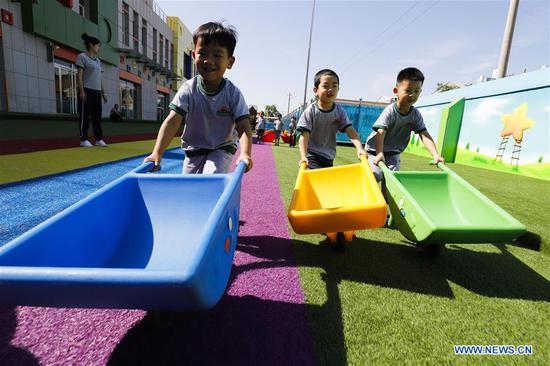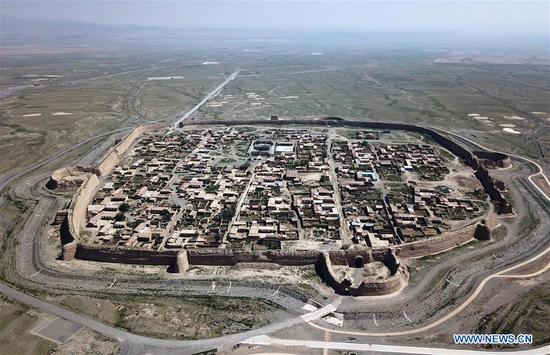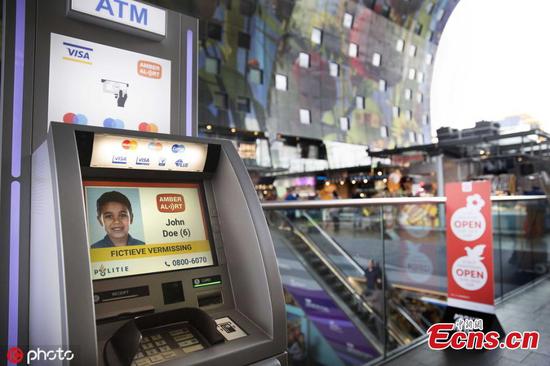
Classified domestic trash is transported to the garbage transfer station for disposal in Beijing. (WANG ZHUANGFEI/CHINA DAILY)
Beijing will implement mandatory trash sorting rules in public spaces such as schools, hospitals and business areas, in a move to further encourage citizens to participate in garbage classification, a senior city official said on Wednesday.
Resident credit accounts, including how people sort their domestic trash in their daily lives, are also set to be established so that some violations will be recorded in occupants' accounts, Zhang Jiaming, deputy mayor of Beijing, said in a report submitted to the Standing Committee of the Beijing Municipal People's Congress on Wednesday. "We will set up a mechanism that garbage trucks can refuse to transfer trash if it is not classified."
Real-time supervision of all kinds of garbage in the city will begin soon to drive the classification, he said.
Beijing has carried out trash sorting since early 1998 when Dachengxiang community in Xicheng district became the first neighborhood to classify garbage. At the end of 2011, the city published China's first domestic waste management regulation, which took effect on March 1, 2012.
However, the implementation of trash sorting in Beijing hasn't gone well in the past decade, since mere encouragement is not enough for citizens to change their habits, said Hao Zhilan, director of the urban construction and environmental protection committee at the Beijing's People Congress.
The previous regulations didn't give specific fines for households, companies or institutions that fail to sort their garbage properly.
"Mandatory trash sorting is thus necessary for people, and revising the rules is also urgent in order to specify that garbage classification is a duty for waste producers," she said.
A survey conducted by the standing committee of the municipal people's congress in April showed that only 20 percent of those sampled can accurately discard kitchen waste in trash bins.
The survey was based on 3,071 people in 16 downtown and suburban districts of Beijing who lived in the areas for more than half a year.
The survey showed that residents' unwillingness to participate in garbage classification is due to a lack of trash sorting facilities in communities and the irregular garbage transfer by trucks.
Hao also suggested establishing a report-reward mechanism on mixed garbage transport activities and including trash sorting on an individual's credit record. Disciplinary measures should be administered to violators.
She added that some specific measures should be taken to reduce the waste produced by the express delivery industry and to recycle packaging.
In 2017, the Beijing municipal government released a waste disposal action plan specifying the four categories for sorting household trash: dry garbage, kitchen waste, recyclables and hazardous waste. It also aimed to have trash sorting reach 90 percent of the city by 2022.
Some projects based on the resources from garbage recycling in Beijing's suburbs will be completed by the end of this year, along with the establishment of trash sorting demonstration areas in the capital.











